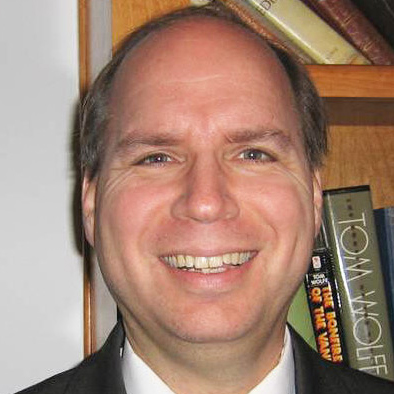The tornado that tore through here late last month left 41 dead and 12 still missing. Whole neighborhoods now resemble bombed-out postwar Tokyo or Berlin. But this devastation is only part of the story. Tuscaloosa is now the scene of an inspiring volunteer relief effort taking place without the guidance of any central planner.
Instead of going home for break, for example, students in the Greek system at the University of Alabama and historically black Stillman College stayed to cook more than 7,000 meals per day. Local churches have assembled armies of volunteers and vast stores of goods, ranging from dog food to child car seats, and are dispersing them with no questions asked at “free department stores.” It is doubtful that a more secular city could have fared as well. Other than churches, much of the strength of Tuscaloosa’s extensive mutual aid comes from an unlikely source: right wing talk radio. The four Tuscaloosa Clear Channel stations have pre-empted their normal fare of Rush, Hannity and top 40 songs to serve as a relief clearinghouse through simulcasts. Gigi South, the local market manager for Tuscaloosa Clear Channel, says that it was her decision to begin the simulcasts.
It was hard to do otherwise. Employees saw demolished neighborhoods outside their windows and the desperate calls for help came in almost immediately. Because many residents lost power and were unable charge cell phones, battery-operated and car radios often became their only form of communication.
These stations have only 12 full-time employees among them, but they’ve have had a vast impact. The on-air jocks have taken on grueling shifts, sometimes working 10 hours straight.
The goal of the simulcasts is simple: Connect givers and victims and allow them to exchange information. According to Ms. South, “this whole thing has been about connecting listener to listener. They are the ones doing this. We’re just the conduit.”
Ms. South is being modest. In many cases, people have dropped off goods—sometimes dozens of cooked meals—at the station’s door. The on-air jocks have rushed them to those in need. The higher-ups at Clear Channel have fully supported the local initiative to pre-empt normal programming and have provided generators and engineers to keep the stations on the air round the clock.
In a typical pattern, someone calls in to express a need for a particular area or group. Fifteen minutes later, the same listener relates that 10 people showed up and offered their services. Churches and other groups often call in to specify a shortage of particular goods, such as bug spray and suntan lotion for volunteers, and an excess of others, such as diapers. This allows givers to tailor their donations. Wal-Mart and other businesses call in to offer free prescriptions, charging stations for cell phones, and trucks to remove debris upon request.
In one particularly moving case, a worn-out relief coordinator for an outlying trailer park broadcast a desperate appeal. She had been cooking meals for several undocumented Hispanics living in tents who were afraid to go to the authorities. She was heartbroken because she wanted to visit her mother in Mississippi who had suffered a stroke, but she feared leaving her neighbors unaided.
Within minutes, two nurses, translators, and other volunteers were on the scene. The simulcast now includes brief Spanish language announcements. And listeners, even if they are normally angered about illegal immigration, show no hesitation in lending a hand in such cases.
Callers unable to get through because of tied-up phone lines can make use of associated Facebook pages and Twitter accounts. Tuscaloosa Clear Channel’s tweets now reappear, along with announcements from the local government, on outdoor electronic message boards throughout the city and the University television station carries live feeds of the simulcast.
Although Tuscaloosa Clear Channel normally caters to a white, conservative audience, grateful listeners often make tearful calls from predominantly black and Hispanic neighborhoods like Alberta that bore the brunt of the tornado. No other radio or television stations in the community, public or private, have come close to matching this effort.
More than a week after the tornado, the calls continue to flow into the stations. But Ms. South worries that many Americans are forgetting Tuscaloosa as other stories, such as the raid on Osama bin Laden, increasingly dominate the news. “This is like nothing I’ve seen before. This is awful. We’re going to need help outside of our town. The bottom line is that here the people that we are talking to on air are the people that have no homes. They have no home, they have no phone service. They have no television. Nothing except the radio.”










